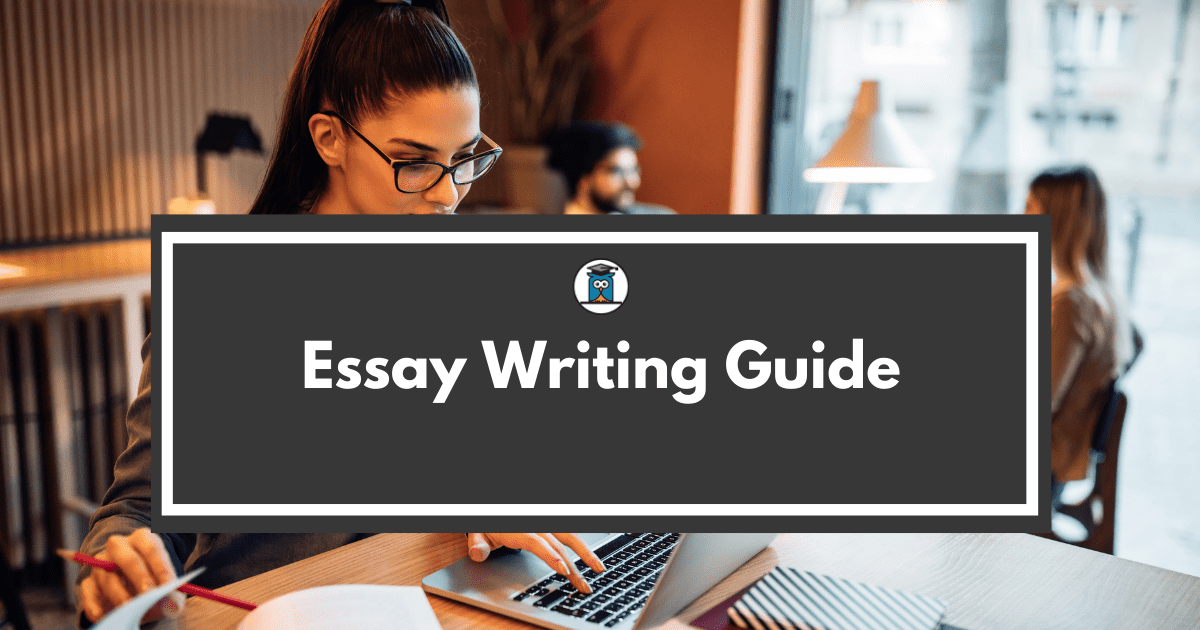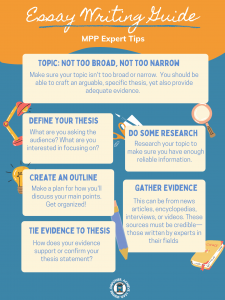Writing essay after essay can feel redundant–and if you don’t enjoy the process, it’s not only redundant, but downright unenjoyable. Particularly when you don’t feel positively about any given subject, seeking help may seem brutal. But a little essay writing guidance can go a long way. And who knows—it could even help you like writing essays more. Crazy to imagine, right?
Key to understanding how to write a cohesive essay is learning how each particular component contributes to the whole. Regardless of your skills, if you’re a student, you’ll likely have to write a few–dozen–essays in your day.
There are various essay-writing tips you can learn to help improve your writing. This can be beneficial to any student, including those interested in writing, English, history, or education. If you’re a soon-to-be college student, it’s also a great idea to brush up on your essay skills and prepare for the college admissions essay.
Selecting your essay topic
For many students this is the most difficult part. Choosing an overly-broad topic will make it challenging to provide enough specific evidence in your body paragraphs. You also don’t want to make the topic too specific, because then you may have trouble finding enough resources.
Something else to consider is the type of essay you’ll be writing:
-
- Persuasive – arguing one opinion or point of view
- Explanatory – showing/describing an event, usually with a neutral point of view
- Compare/Contrast – finding similarities and differences between two people, books, works of art, scenes, or concepts
- Narrative/Descriptive – telling a story (often personal)
For persuasive essays, you’ll need to pick a topic that is arguable on two (or more sides). For an explanatory essay, you’ll want to pick a topic which you can either research extensively, or about which you’re already very knowledgeable. When picking a topic for a compare and contrast essay, pick two things that have clear similarities and differences, and make sure you’re identifying two separate people, events, or works. A narrative essay provides more leeway in choosing a topic–essentially, you’ll want to choose a topic that resonates with you.
In general, many people find that when they’re interested in the topic it’s much easier to write the essay. It’s also far more enjoyable. And you may even determine that this subject is your passion!
If you’re struggling, don’t be too rash to pick a topic–do your research and make a list of potential topics so you can weigh your options.
Thesis statement
The thesis statement is usually the most important part of your essay—and basically what the whole paper revolves around. For some, writing the thesis after doing research and gathering substantial information works best. Other times–especially if you’re very familiar already with your topic–writing a thesis statement immediately after selecting your topic works fine.
If you aren’t sure where you stand, I recommend not stressing about the thesis and waiting until after you’ve gathered all the information.
What does a thesis statement accomplish?
A major component to essay writing is getting comfortable crafting thesis statements. A thesis statement organizes and summarizes your ideas and information into a solid argument and subsequently provides your readers (and yourself) with organization throughout your essay.
If you don’t have an assigned topic
This can seem daunting, but it can actually be much more fun to choose your own topic than using a prompt which your teacher provides. You have full creative freedom to write about something that interests and/or challenges you.
Create a general list of potential topics, then try narrowing it down by a) what interests you most and b) which can actually be made into solid essay topics. To do this, go through each one and see if they can be made into compelling questions that align with the specific type of essay.
Note: Make sure you have one main argument and enough resources before getting started.
How to know if a thesis statement is strong
A strong thesis statement isn’t merely an observation, but a specific and arguable statement. By arguable, I mean that the statement should warrant and/or yield discussion, analysis, or questions.
Weak thesis – There are both negative and positive aspects to homeschooling.
Strong thesis – Students should not be homeschooled because they are not provided with sufficient support and resources that are granted to students within educational institutions, and thus aren’t prepared for higher education.
The first statement is vague and doesn’t contain an argument, while the second statement is specific and takes a stand.
Introduction
The introduction is seemingly simple, but when you actually start writing, it can feel tricky to be brief while compelling enough to invite readers in.
While you do want to give the whole priming overview–background information, context, etc.–you also want to provide your hook. The hook is what will hopefully draw your reader in, making them want to keep reading. This might be a thought-provoking question, anecdote, intriguing fact or statistic.
After you’ve written your hook, provide some background information. This should just be some of the key information that’s necessary to understand before diving into the meat of the essay. Depending on the type of paper, this might be historical/social/geographic context, relevant theories, or key terms.
Body paragraphs: Evidence
The body paragraphs are where you provide evidence that backs up your thesis. In a “standard” essay, you’ll have three body paragraphs which feature your pieces of evidence, but many teachers don’t mind if you modify this structure.
The key to writing body paragraphs is starting out with a more general topic sentence that introduces what you’ll be discussing—and then getting more specific with your actual evidence. This evidence could be in the form of facts, data, quotes, etc.
In a communications class I took, my teacher taught me a great way to stay organized when writing complicated, long papers—but really, this can apply to any essay. If you have trouble keeping track of where you are in the paper, this methodical strategy is perfect. Apply the following when writing body paragraphs (after writing the topic sentence):
- Write a sentence (or two) that is your main evidence.
- Your next sentence should be a follow-up to the evidence, explaining why this is important, its implications, and what the information means within context.
- The third sentence concludes what you wrote, pretty much just tying the sentences together. This can be a way of transitioning more cohesively to the next piece of evidence in the paragraph.
If you’re on a computer, you can color code each of the sentences when proofreading which makes it easier to see if there are gaps or places that aren’t flowing.
Concluding your essay
Your conclusion wraps up your essay, essentially summarizing your thesis in a few sentences. Tie together your key points and craft a clear closing statement that leaves the reader with a message relaying your main points and why they’re important.
A conclusion can also provide the reader with a new perspective–but make sure you don’t try to throw in too much new information at once. You can also tie in an idea mentioned earlier and leave the readers with a question or thought.
Sometimes it can be difficult reaching out for help at school. At My Private Professor, we have top-notch, expert online tutors in English Language Arts (ELA) who can help you with essentially any topic. Whether you’re working on your grammar, sentence structure, or writing in general, MPP tutors are here to support you!
Author: Lydia Schapiro








